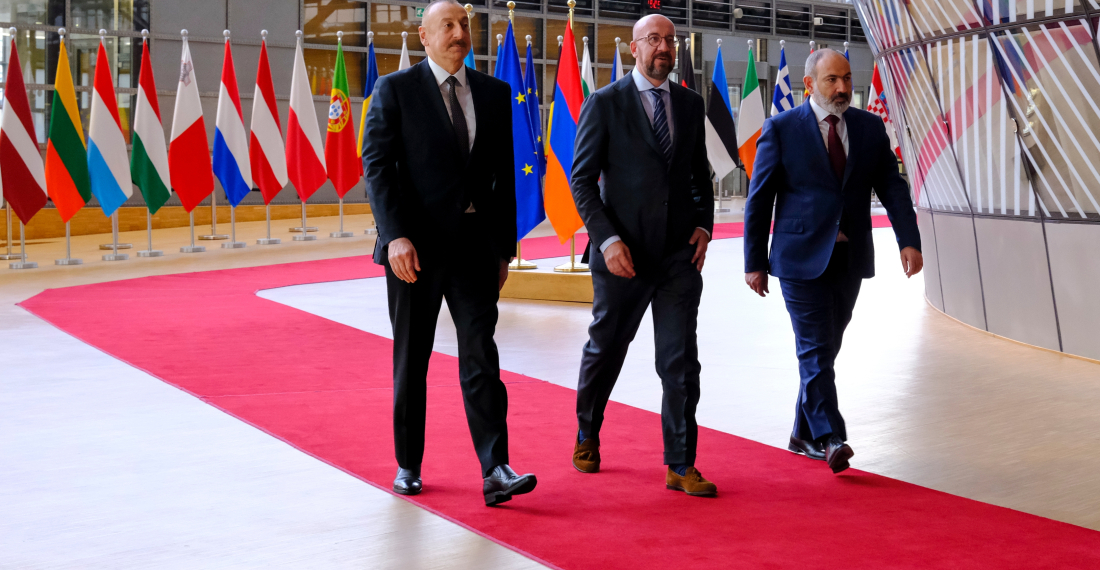Conciliation Resources (London), in partnership with European Resources for Mediation Support, has published a new report entitled "European Union support to the Armenian-Azerbaijani peace process: new regional and global challenges". The report was written by David Lewis, Professor of Global Politics in the Department of Politics, University of Exeter, UK.
The report recommends three areas in which the EU can support the Armenian-Azerbaijani peace process since the 27-member bloc emerged as a leading mediator between Baku and Yerevan, following a successive between Armenian Prime Minister Nikol Pashinyan, Azerbaijani President Ilham Aliyev, and European Council President Charles Michel.
The three areas are challenging militarisation, engaging in regional geopolitics, and rethinking civil society.
The recommendations include prioritising conflict prevention initiatives to constrain military action and promote peaceful means of dispute resolution, and also attempting to gain a better understanding the role of Russian peacekeeping forces. Lewis writes that the EU should ideally involve more engagement with regional powers on security, while noting that this will be problematic for as long as Russia continues to invade Ukraine.
He also writes that "as part of its approach, [the EU] should encourage wider public and civil society participation in discussions on the future of regional trade and transport links to improve the conflict sensitivity of infrastructure projects."
Finally, he writes that EU engagement with civil society must also be rethought so that it embraces "a wider spectrum of organisations and formats – from local grassroots start-ups to networks of experts and technical advisers in universities, business and think-tanks who can provide expertise and know-how to policymakers."
He notes that effective online communication is currently lacking, writing that "peacebuilding groups need new media and communication strategies that avoid clichés and jargon and find non-confrontational ways to engage with different groups in societies where nationalist positions remain entrenched or are gaining ground."
Click here to read the full report.
source: commonspace.eu with Conciliation Resources
photo: Conciliation Resources



